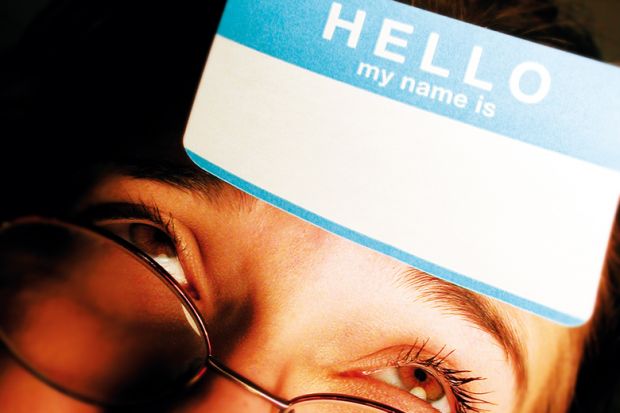A candidate’s name alone may stop them getting a postdoctoral position in the natural sciences in the US because of gender and race prejudice, according to new research.
In an experiment, identical CVs for a hypothetical PhD graduate were sent to biology and physics professors at eight large public US research universities.
The only differences between the eight CVs sent out were the names used for the candidates – Bradley Miller, Claire Miller, Zhang Wei, Wang Li, Jamal Banks, Shanice Banks, José Rodriguez and Maria Rodriguez.
The research, published in Sex Roles, found that physics academics rated men as being significantly more competent and hireable, and likewise that they preferred white and Asian candidates over black and Latinx applicants.
Black women and Latinx men and women were rated as having the lowest hireability in physics.
Biology professors judged Asian candidates to be more competent and hireable than black candidates, but did not show other racial biases, or any bias against women.
Women were rated as being more likeable than their male counterparts across both departments.
A total of 251 faculty from physics (94) and biology departments (157) participated in the study. Ninety per cent of physics respondents were male, while 65 per cent of those from biology were men.
The increased gender bias in physics, compared with biology, did not surprise the researchers because biology is a “more gender-balanced field” and physics departments may have more “masculine cultures”, the paper says.
One of the paper’s authors, Jessica Saunders, said that the findings demonstrated why science suffered from a “leaky pipeline”. “Many racial, ethnic, and gender minority individuals enter the field, but few obtain postdoctoral positions, and even fewer become faculty,” she said.
Dr Saunders, a postdoctoral research associate at the Women’s Research Institute of Nevada, said that the “standout result” was the “double bias faced by racial and ethnic minority women candidates in physics”.
Across all science and engineering fields, women make up 42.5 per cent of assistant professors and 24.5 per cent of full professors at four-year universities in the US, according to 2018 data.
African and Latinx Americans account for less than 1 per cent of STEM faculty, 2017 data show.
Dr Saunders said that biases in recruitment mean that women and minorities were “exposed to fewer scientists who ‘look like them’ and are less likely to believe that they are hireable or competent in a STEM discipline”.
The study’s authors say that universities should consider a range of changes to overcome gender and race bias, such as getting committees with diverse memberships to decide on applications by postdocs, not principal investigators only. Specific training for staff to address bias against ethnic minority women should be considered, the paper adds.
POSTSCRIPT:
Print headline: Name of the game: study reveals gender and ethnicity bias
Register to continue
Why register?
- Registration is free and only takes a moment
- Once registered, you can read 3 articles a month
- Sign up for our newsletter
Subscribe
Or subscribe for unlimited access to:
- Unlimited access to news, views, insights & reviews
- Digital editions
- Digital access to THE’s university and college rankings analysis
Already registered or a current subscriber? Login








